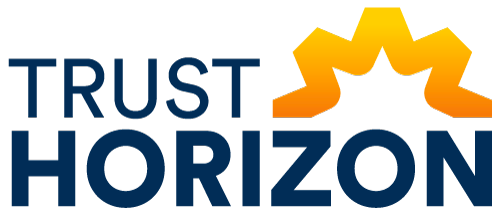Trust Horizon supports Whakatāne Kiwi Trust efforts to boost chick survival rate
Tom Armstrong and Hilary Sheaff on the UBCO bikes, picking up some of the AT220 traps from the factory in Whakatāne, with factory manager James Clark.
Whakatāne Kiwi Trust were the recent recipients of a $35,586 grant from Trust Horizon, to go towards equipment that will help grow the region’s population of North Island brown kiwi.
The Whakatāne region is home to at least 350 kiwi. These native birds are considered a measure of a healthy ecosystem; if they thrive, the environment they live in thrives with them.
Maintaining the current population requires a chick survival rate of at least 20%, while population growth requires a rate of 30%. However, over the last four seasons, stoat predation has seen the region’s chick survival rate drop from 57% to a worrying 14%.
Faced with these steadily declining numbers, the Whakatāne Kiwi Trust undertook a review of its entire predator control network. “We commissioned a report from environmental consultants, Boffa Miskell, who closely studied our current regime,” says Whakatāne Kiwi Trust Marketing and Funding Coordinator, Hilary Sheaff. “Their report included recommendations to move some traps, install new traps, and fill in various gaps. The sheer scale of what we needed to do became apparent very quickly.”
The Kiwi Trust’s current predator control area covers approximately 3,000 hectares. Traditionally, the organisation has relied on contractors and volunteers to install and manage traps on foot. Implementing Boffa Miskell’s robust recommendations across their vast control area would require the help of two electric bikes, which the Kiwi Trust has purchased with the help of Trust Horizon’s grant.
Sheaff estimates that the locally-sourced electric bikes will make their team up to four times more efficient. “A person can only carry one or two traps at a time. With the bikes we’ll be able to carry up to 10, and cover a lot more ground much faster.”
A portion of the grant has been used to purchase 20 new automated traps from Whakatāne-based NZ AutoTraps. The upgraded traps only need to be checked once every four months. With the old manual traps requiring fortnightly checks, the new automated tools will save invaluable time and reduce travel.
Claire Travers and Sue Laurent using the new kiwi tracking telemetry gear.
The grant has also gone towards four new TR8 digital telemetry sets. The TR8 is used to monitor the kiwi chick survival rate, making it a critical component of the project. “Our old telemetry equipment was being phased out, which meant we wouldn’t be able to get the parts to maintain it,” says Sheaff. “We’ve now been able to upgrade to the new digital gear, so we can keep accessing important information about incubation and survival.”
David Glover, Trust Horizon Chair, says the Whakatāne Kiwi Trust’s expansion project aligned closely with Trust Horizon’s vision and mission. “The sustainability and reduced emissions, combined with improving the region’s native ecosystem, made the project a great fit,” says Glover. “We’re so lucky to have an urban reserve right on our doorstep here in Whakatāne. It’s so important to protect it, and we’re proud to support the fantastic work Whakatāne Kiwi Trust is doing for the region’s kiwi.”
Whakatāne Kiwi Trust hopes to see the results of the bolstered predator control system within the next two to three chick seasons. “We want to get that survival rate back up to over 30%, and our ultimate goal is to have predator control over 20,000 hectares,” says Sheaff. “These new tools will be critical in making that happen. We’re really thankful to have the support of Trust Horizon.”
If you want to apply for funding from Trust Horizon, look at our funding page here for more information on what we fund and how to access funding.


